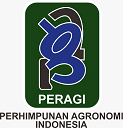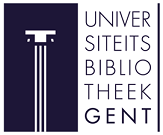Local Ecological Knowledge of Coffee Farmers on Earthworms and Pests as Soil Quality in Mount Tambora, Indonesia
Abstract
The local ecological knowledge of coffee agroforestry farmers regarding earthworms serves as one of the soil fauna indicators of soil fertility and quality. This knowledge is inherited through generations from observations and experiences of coffee farmers, sometimes differing from modern ecological knowledge. This study aims to analyze the relationship between farmers Local Ecological Knowledge (LEK) in simple coffee agroforestry systems and their socio-demographic characteristics; to examine their understanding of the ecological roles of earthworms and Lepidiota stigma; and to identify and assess the gap between Local Ecological Knowledge (LEK) and Modern Ecological Knowledge (MEK). Local ecological knowledge was obtained through in-depth interviews with coffee agroforestry farmers concerning soil management, the role of earthworms, and pests in maintaining soil quality on the slopes of Mount Tambora (NTB). In-depth interviews were conducted with key respondents and coffee agroforestry farmers grouped by gender, age, and educational background using predetermined questions. Based on interviews with 50 coffee farmers, the percentages of soil quality indicators recognized by them ranked as follows: earthworms (80%), soil color (74%), plant growth (36%), humus or litter (10%), and soil structure (6%). Furthermore, 72% (n=50) of coffee farmers indicated that soil organisms significantly influence soil fertility. This study highlights the scientific value of Local Ecological Knowledge in sustainable soil management and encourages its integration with modern science through participatory research.
Keywords
Full Text:
PDFReferences
Adelifa, A. O., Ajayi, O. O., Toromade, A. S., & Sam-Bulya, N. J. 2024. Integrating traditional knowledge with modern agriculture practices: A sociocultural framework for sustainable development. World Journal of Biology Pharmacy and Health Sciences 20(02), 125–135. DOI: https://doi.org/10.30574/wjbphs.2024.20.2.0850
Al-Maliki, S., Al-Taey, D. K. A., & Al-Mammori, H. Z. (2021). Earthworms and eco-consequences: Considerations to soil biological indicators and plant function: A review. Acta Ecologica Sinica, 41(6), 512–523. https://doi.org/10.1016/j.chnaes.2021.02.003
Amizhthini, S., Yasodha, P., Roseleen, S. S. J., Satya, V. K., Raja, K., & Ambethgar, V. (2024). Global species diversity, bioecology and management of white grubs in crops: a review. International Journal of Tropical Insect Science, 44(5), 2259–2285. https://doi.org/10.1007/s42690-024-01337-y
Ayalew, B., Hylander, K., Zewdie, B., Shimales, T., Adugna, G., Mendesil, E., Nemomissa, S., & Tack, A. J. M. (2022). The impact of shade tree species identity on coffee pests and diseases. Agriculture, Ecosystems and Environment, 340(August), 108152. https://doi.org/10.1016/j.agee.2022.108152
Boonchamni, C. (2019). Physical-Chemical Properties of Earthworm Casts in Different Earthworm Species. 1–162.
Cerda, R., Avelino, J., Harvey, C. A., Gary, C., Tixier, P., & Allinne, C. (2020). Coffee agroforestry systems capable of reducing disease-induced yield and economic losses while providing multiple ecosystem services. Crop Protection, 134(October 2019). https://doi.org/10.1016/j.cropro.2020.105149
Chao, H., Sun, M., Wu, Y., Xia, R., Yuan, S., & Hu, F. (2022). Quantitative relationship between earthworms’ sensitivity to organic pollutants and the contaminants’ degradation in soil: A meta-analysis. Journal of Hazardous Materials, 429(October 2021), 128286. https://doi.org/10.1016/j.jhazmat.2022.128286
Dadi, D. (2019). Local Ecology-Based Agroforestry Management: Building Effectiveness of Knowledge-Based Wetland Management. Jurnal Mantik, 3(3), 170–176. https://iocscience.org/ejournal/index.php/mantik/article/view/1494/1054
Danish, M., Abdul, T., Benedict, B., Dibyajyoti, O., Mughees, M., Din, U., Kumar, P., Saleem, V., Izhar, S., Hany, U., & Mohamed, H. I. (2024). Earthworms as Catalysts for Climate ‑ Resilient Agriculture : Enhancing Food Security and Water Management in the Face of Climate Change. In Water, Air, & Soil Pollution. Springer International Publishing. https://doi.org/10.1007/s11270-024-07576-6
Diversity, E., Conversion, F., & Province, Q. N. (2021). Earthworm Diversity, Forest Conversion and Agroforestry in Quang Nam Province, Vietnam.
Fowo, K. Y. (2022). Jurnal Penelitian Kehutanan Wallacea. 11, 71–78.
Hiola, A. S., & Puspaningrum, D. (2019). Knowledge, Attitude, and Land Conservation Practices in Ilengi Agroforestry. Gorontalo: Journal of Forestry Research, 2(1), 40–53.
Kupika, O. L., Gandiwa, E., Nhamo, G., & Kativu, S. (2019). Local Ecological Knowledge on Climate Change and Ecosystem-Based Adaptation Strategies Promote Resilience in the Middle Zambezi Biosphere Reserve , Zimbabwe. 2019. https://doi.org/10.1155/2019/3069254
Kuria, A. W., Barrios, E., Pagella, T., Muthuri, C. W., Mukuralinda, A., & Sinclair, F. L. (2018). Geoderma Regional Farmers ’ knowledge of soil quality indicators along a land degradation gradient in Rwanda. Geoderma Regional, 15, e00199. https://doi.org/10.1016/j.geodrs.2018.e00199
Lam, D. P. M., Hinz, E., Lang, D. J., Tengö, M., Wehrden, H. Von, & Martín-lópez, B. (2020). Indigenous and local knowledge in sustainability transformations research : a literature review. 25(1).
Liao, J., Li, Y., Ni, J., Ren, T., Shi, K., Zou, X., Chen, H. Y. H., Delgado-baquerizo, M., & Ruan, H. (2024). Unreported role of earthworms as decomposers of soil extracellular polymeric substance. Applied Soil Ecology, 197(January), 105325. https://doi.org/10.1016/j.apsoil.2024.105325
Limpo, S. Y., Fahmid, I. M., Fattah, A., Rauf, A. W., Surmaini. M., Saptana, Syahbuddin. H., & Andri, K. B. 2022. Integrating Indigenous and Scientific Knowledge for Decision Making of Rice Farming in South Sulawesi, Indonesia. Sustainability Tropical Crop Science and Agriculture Management 14, 2952. DOI: https://doi.org/10.3390/su14052952
Mardiani, M. O., Kusumawati, I. A., Purnamasari, E. K. A., & Prayogo, C. (2022). Local ecological knowledge of coffee agroforestry farmers on earthworms and their relation to soil quality in East Java ( Indonesia ). 23(7), 3344–3354. https://doi.org/10.13057/biodiv/d230705
Medeiros, F. D. P., Carvalho, A. M. X. De, Ramos, C. G., Dotto, G. L., Cardoso, I. M., & Theodoro, S. H. (2024). Rock Powder Enhances Soil Nutrition and Coffee Quality in Agroforestry Systems. 1–16.
Practices, A., Lameso, L., & Bekele, W. (2021). Latamo Lameso , Wondmagegn Bekele . Farmers Local Knowledge on Niche Farmers Local Knowledge on Niche Selection , Management Strategies and Uses of Cordia africana Tree in Agroforestry Practices of Sidama Zone , Southern Ethiopia. November 2020. https://doi.org/10.11648/j.ajaf.20200806.14
Prasetyo, A. A., Kulsum, U., & Qomariah, N. (2021). Factors Affecting Cassava Cultivation in Jombok Village Ngoro Sub-District Jombang Regency. AGARICUS: Advances Agriculture Science and Farming, 1(2), 81–85. https://ejournal.unwaha.ac.id/index.php/agaricus/article/view/1960
Prayogo, C., Sholehuddin, N., Zainul, E., Syahfinada, H., & Rachmawati, R. (2019). Soil macrofauna diversity and structure under different management of pine-coffee agroforestry system. Journal of Degraded and Mining Lands Management 6(3), 1727–1736. https://doi.org/10.15243/jdmlm.
Ramadani, D., Astari, E., Digdi, A. A., & Pulang. P. (2023). Integrating indigenous enviromental and scientific knowledge for ecosystem-based adaptation of Muro Practices on Lembata Island. Conference Series: Earth and Environmental Science 1220 012041. doi:10.1088/1755-1315/1220/1/012041
Ribeiro, G. T. (2021). Soil macrofauna as a bioindicator of soil quality in successional agroforestry systems Macrofauna do solo como bioindicadora da qualidade do solo em sistemas agroflorestais sucessionais La macrofauna del suelo como bioindicador de la calidad del suelo en . 2021, 1–10.
Salamah, K. L., Haryadi, N. T., Aldini, G. M., Kurnianto, A. S., & Dewi, N. (2023). Pengaruh Vegetasi di Perkebunan Kopi Robusta terhadap Keanekaragaman Kumbang Tanah ( Ground Beetle ) Effect of Vegetation on Robusta Coffee Plantations on Ground Beetle Diversity. 7(2), 72–78. https://doi.org/10.20961/agrotechresj.v7i2.75955
Shukla, G., Singh, S., & Amardeep, G. (2020). Synthesis of mycogenic zinc oxide nanoparticles and preliminary determination of its efficacy as a larvicide against white grubs ( Holotrichia sp .). International Nano Letters, 10(2), 131–139. https://doi.org/10.1007/s40089-020-00302-0
Sugandi, W. K., Padjadjaran, U., Sampurno, R. M., Padjadjaran, U., Soleh, M. A., & Padjadjaran, U. (2020). Improvement of Knowledge and Action of Farmers in Agroforestry Coffee Cultivation. December. https://doi.org/10.20886/jpsek.2020.17.3.209-219
Sumarniasih, M. S., Kembaren, D. A., Narka, I. W., & Karnata, I. N. (2023). Evaluasi Kualitas Tanah dan Pengelolaan Lahan Kering di Kecamatan Gerokgak dan Kubutambahan Kabupaten Buleleng , Provinsi Bali , Indonesia Soil Quality Evaluation and Dry Land Management in Gerokgak and Kubutambahan District Buleleng District , Bali Provi. 6(3), 659–669.
Wang, M., Sun, X., & Jiang, L. (2024). Tissue and Cell Ultrastructural comparison of the larval midguts between Trypoxylus dichotomus ( Linnaeus , 1771 ) and Anomala corpulenta (Motschulsky , 1854 ) ( Coleoptera : Scarabaeidae ). Tissue and Cell, 90(July), 102521. https://doi.org/10.1016/j.tice.2024.102521
Williams, P. A., Sikutshwa, L., & Shackleton, S. 2020. Acknowledging indigenous and local knowledge to facilitate collaboration in landscape approaches-lessons from a systematic review. Land 9 331. DOI:10.3390/land9090331
Wiratmoko, D. A., Supriyanto, A., & Achadian, E. M. (2021). Populasi Kumbang Lepidiota stigma F . ( Coleoptera : Scarabaeidae ) Hasil Tangkapan Perangkap Cahaya Pada Musim Penerbangan MT 2019 / 2020 Di Kebun Mumbul , Jember Population of Lepidiota stigma F . Beetle ( Coleoptera : Scarabaeidae ) on Light Trap Captu. 1(1), 59–66.
Wöhl, L. (2024). Earthworm communities and their relation to above- ground organic residues and water infiltration in perennial cup plant ( Silphium perfoliatum ) and annual silage maize ( Zea mays ) energy plants. February, 1–17. https://doi.org/10.1111/sum.13041
Xiao, J., & Xiong, K. (2022). Science of the Total Environment A review of agroforestry ecosystem services and its enlightenment on the ecosystem improvement of rocky deserti fi cation control. Science of the Total Environment, 852(May), 158538. https://doi.org/10.1016/j.scitotenv.2022.158538
Refbacks
- There are currently no refbacks.

























